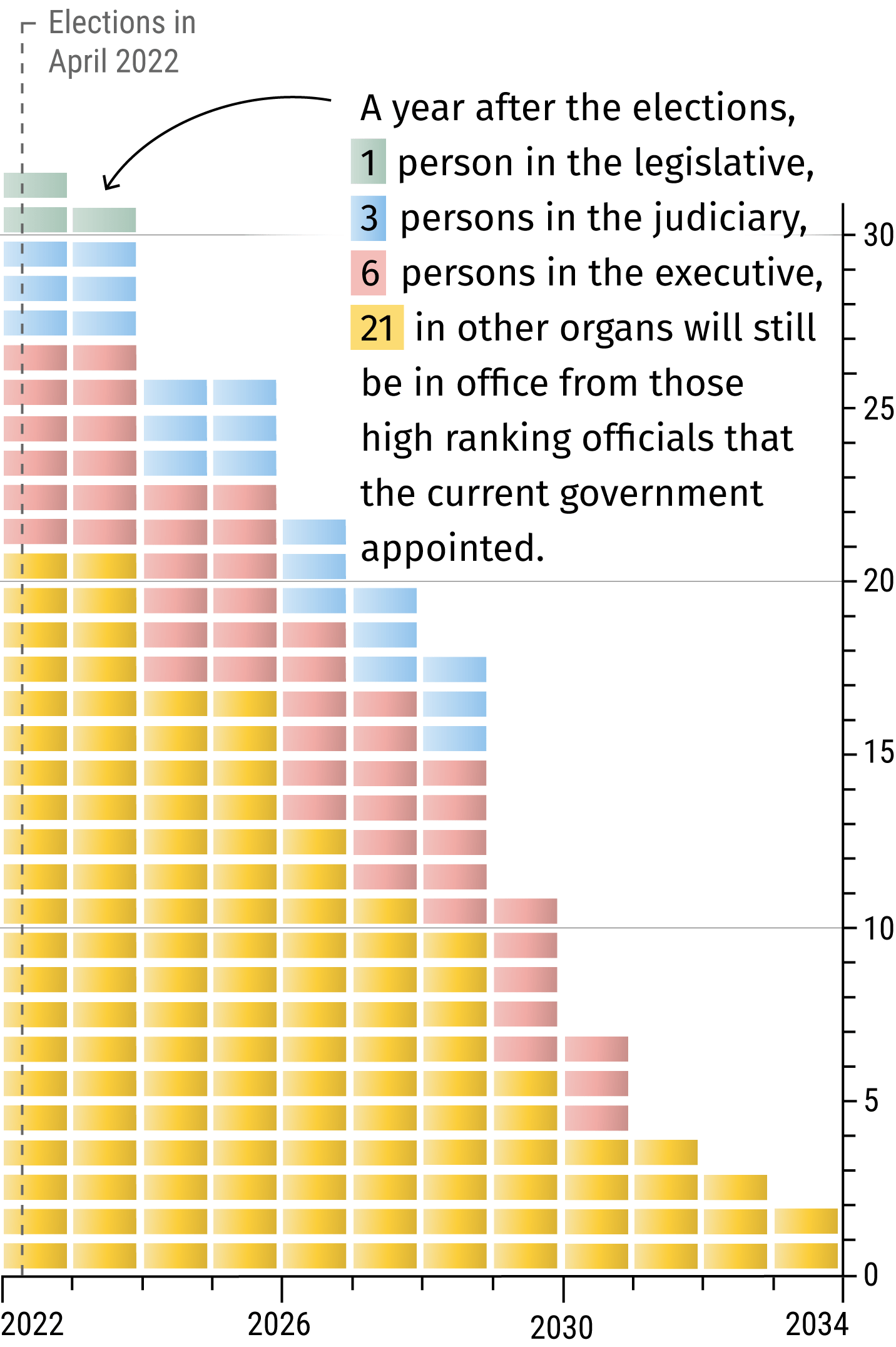There have been several legislative changes since 2010 aiming at the cementing of the power of Fidesz (the governing party) and at the creation of a parallel state. Many public office holders who are difficult to remove and who had received their mandates exclusively from the current government or Fidesz's parliamentary majority will retain their positions after the elections, regardless of their outcome.
In case of a government change, these persons may well hinder the new government through their varied formal and informal means related to their positions. Such office holders are present in all corners of the state apparatus:



